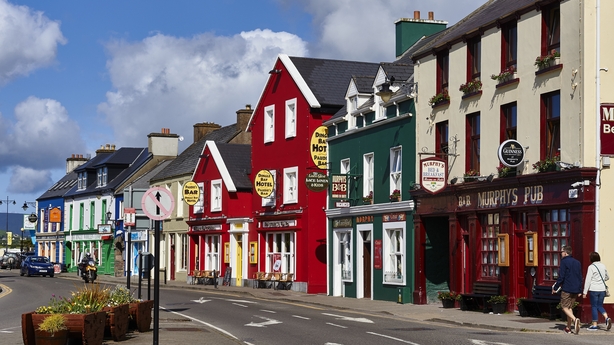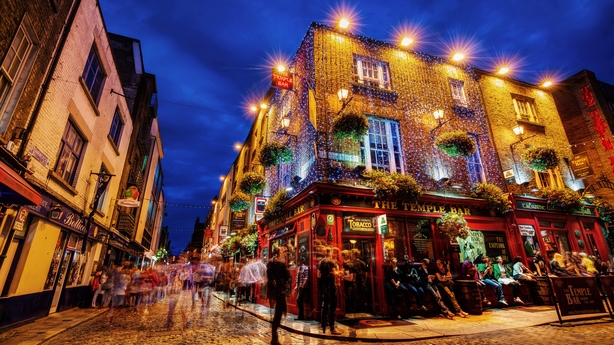Professor Diarmaid Ferriter, Professor of Modern Irish History in UCD, joined Today With Claire Byrne to discuss how the Irish pub has declined, taking with it its unique connection to Irish culture. Listen back above.
A recent report by the Drinks Industry Group of Ireland showed that one in five pubs in the country has shut since 2005, a huge figure considering how important the pub was at the time of the foundation of the Irish State, Ferriter said.
"They were under enormous pressure to set the State up on a firm footing politically, but also socially and culturally. We've spoken before about the impulse toward censorship and making sure there was a cultural self-sufficiency."

He added that "questions had always been there" about the large amount of pubs in Ireland in the 1920s, with 17,000 licensed premises in Ireland in the middle of the decade. At this time, there were attempts by the Licensed Vintners to shrink the amount of pubs, also, with some pubs' licenses not renewed and the owners compensated.
After the first World War there was a wider climate of prohibition and the role alcohol plays in society, with concerns around excessive drinking. "The vintners are very sensitive around the way in which drink is being depicted", Ferriter said.
Terms like "confirmed drunkard" and "habitual drunkard" became commonplace, as society tried to find institutions where they could be rehabilitated. "It was a public health issue, very much, in the 19th century."
"It was a very male culture", Ferriter said. "The pub drinking culture was very much dominated by men. There was a survey of rural Limerick in the 1960s that suggested a respectable woman would not set foot inside a bar unless there was a grocery shop attached."

Women were, however, permitted in the snug of the pub but pubs didn't have women's toilets, making them literally not equipped for women. By the 70s and 80 some publicans still wouldn't serve women, which prompted the Women's Liberation Movement to confront them.
By the 90s, the traditional Irish pub was coming under pressure despite being, as Ferriter noted, "a vital lifeline for people".
"It's a place where stories are told, and of course the pub served that function. You could talk about the rural post offices and the rural Garda station and the pub, that sense of community hubs."
To listen back to Claire's full chat with Diarmuid Ferriter, click above.

